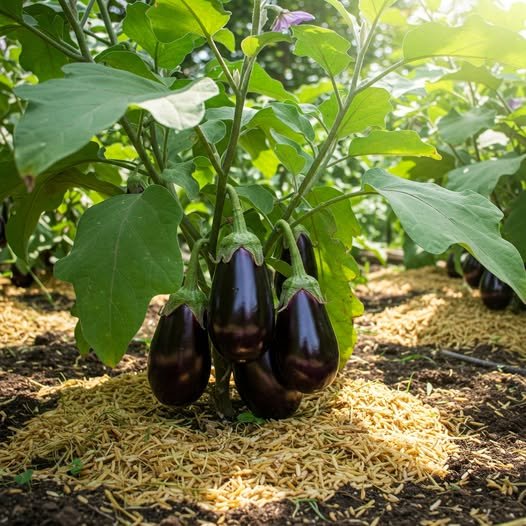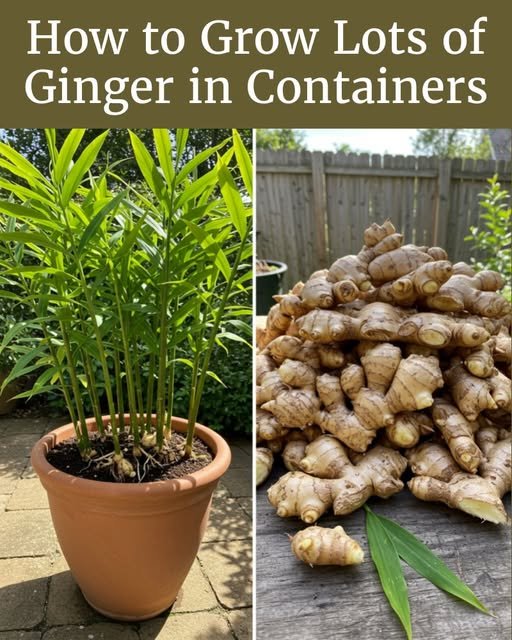Growing Eggplant at Home: A Journey of Surprises
Growing your own vegetables at home can be a rewarding and fulfilling experience. Many people believe that a large garden is necessary to cultivate fresh produce, but that’s not always the case. With a little creativity and care, you can successfully grow eggplants right in your home, whether on a balcony, patio, or even inside your kitchen.
Why Choose Eggplant?
Eggplants, also known as aubergines, are not only delicious but also packed with essential nutrients. They are an excellent source of fiber, vitamins, and antioxidants. Their versatility in cooking makes them a great choice for home gardeners looking to expand their options beyond the usual tomatoes and herbs.
One of the best things about eggplants is that they can be grown in containers, making them perfect for urban dwellers or those without access to a traditional garden. If you have ever thought about growing your own vegetables but hesitated due to space constraints, eggplant might be the perfect choice to start with.
Getting Started: The Basics of Growing Eggplant at Home
Growing eggplants at home is easier than you might think. Here are some essential steps to help you get started:
Choosing the Right Variety
Not all eggplants are the same. Some varieties are better suited for small-space gardening. If you plan to grow them indoors or on a balcony, consider smaller varieties such as:
Fairy Tale Eggplant – A small, striped variety that thrives in containers.
Patio Baby – Specifically bred for container gardening.
Little Fingers – Produces small, tender fruits ideal for home gardeners.
Picking the Right Container
Eggplants need enough room for their roots to grow. A container that is at least 12-14 inches in diameter is ideal. Make sure the container has good drainage holes to prevent waterlogging, as too much moisture can lead to root rot.
Soil and Fertilizer
Eggplants thrive in well-draining, nutrient-rich soil. A mix of potting soil with compost works best. Fertilizing is also important, and you should use a balanced fertilizer (10-10-10) every few weeks to keep your plants healthy and productive.
Sunlight Requirements
Eggplants are sun-loving plants. They need at least 6-8 hours of direct sunlight daily. If you are growing them indoors, place them near a south-facing window or use grow lights to supplement their needs.
Watering
Proper watering is crucial for eggplants. The soil should be kept consistently moist but not waterlogged. Water your plants when the top inch of soil feels dry, ensuring that excess water drains out properly.
The Unexpected Happens: A Pleasant Surprise
When I decided to grow eggplants in my small apartment, I was not sure what to expect. I started with a few seedlings in containers and placed them on my sunny balcony. With regular care, they began to thrive. However, what happened next was something I never anticipated.
Faster Growth Than Expected
I expected my eggplants to take months before yielding any noticeable growth, but within a few weeks, I saw rapid development. The plants grew taller, their leaves became lush and green, and soon enough, tiny purple flowers began to appear.
Abundant Flowers and Pollination Challenges
Eggplants require pollination, and in an indoor or balcony setting, natural pollinators like bees and butterflies may not always be available. I had to hand-pollinate them using a small brush, carefully transferring pollen from one flower to another. To my amazement, this method worked, and soon, small eggplants began to form.
Unexpected Yield in a Small Space
Despite being in containers, my eggplants produced an impressive harvest. I had originally hoped to get a few eggplants, but my plants continued to yield multiple fruits over the season. The sheer productivity in such a small space was beyond what I had imagined.
Common Challenges and How to Overcome Them
While my journey of growing eggplants at home was largely successful, I did face some challenges along the way. Here’s how I tackled them:
Pest Issues
One of the most common issues with eggplants is pests, particularly aphids and spider mites. Since I was growing them at home, I opted for organic pest control methods. A simple neem oil spray worked wonders in keeping these pests away.
Temperature Sensitivity
Eggplants are warm-season plants, and any sudden temperature drop can affect their growth. When the weather turned cooler, I moved my containers indoors and placed them near a grow light to maintain their warmth.
Overwatering Concerns
At one point, I noticed yellowing leaves, which was a sign of overwatering. Adjusting my watering schedule and ensuring proper drainage helped bring my plants back to health.
The Joy of Homegrown Eggplant
Growing eggplants at home, even in a small space, has been an incredibly rewarding experience. Not only did I get to enjoy fresh, organic eggplants, but I also gained a newfound appreciation for gardening.
If you’re considering growing your own eggplants, don’t let the lack of a garden stop you. With the right care and attention, you too can experience the joy of homegrown vegetables—and perhaps, like me, you might just be pleasantly surprised by the results!
So why not give it a try? Your next delicious eggplant dish could be made with produce grown right in your home!



